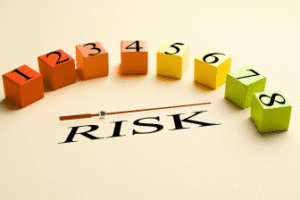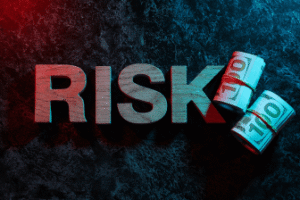
Risk Management Class for MBA Students: Creating Future Business Leaders
Risk Management Class for MBA Students: Creating Future Business Leaders
In today’s business world, risk equals opportunity. Whether it’s financial volatility, cyberattacks, or supply chain disruption, organisations need leaders who can recognise and manage uncertainty.
That’s why every MBA student should study risk management.
An effective risk management class trains students in analytical thinking, strategic foresight, and decision-making — vital skills for leadership. Students learn to recognise, assess, and prioritise risks and determine which ones need mitigation.
This blog explains why MBA students should study risk management, what the coursework covers, and why the Global Risk Management Institute (GRMI) is a strong choice for those pursuing a career in this field.
The Relevance of Risk Management for MBA Students
MBA students learn to think strategically, manage teams, and make business-critical decisions — none of which are risk-free. Whether it’s launching a product in a volatile market or investing during a downturn, every decision carries uncertainty.
A risk management class helps students evaluate risks systematically and balance probabilities with potential impacts. They gain the ability to transform uncertainty into informed strategic decisions.
What to Expect in a Risk Management Course
A risk management course at MBA level is not purely theoretical. It blends concepts with case studies, simulations, and decision-making exercises. Students explore different business risks and learn how to manage them effectively.
Key topics include:
- Fundamentals of Risk and Uncertainty: Understanding types of risks — financial, operational, and strategic — and how they affect performance.
- Quantitative Risk Analysis: Using data analytics and modelling to assess and measure risks.
- Financial and Market Risks: Identifying and managing market volatility, credit exposure, and liquidity issues.
- Operational and Supply Chain Risks: Recognising inefficiencies and disruptions that threaten reliability and performance.
- Enterprise Risk Management (ERM): Integrating risk management with business strategy and planning.
- Crisis Management and Business Continuity: Preparing for unexpected events and reducing negative impacts.
These topics help MBA students develop leadership skills to turn risks into opportunities — a mindset essential for 21st-century business leaders.
The Value of Adding Risk Management to an MBA
An MBA opens doors to diverse career paths. However, employers today value professionals who can handle complexity and uncertainty. Adding a risk management diploma or certificate alongside an MBA shows readiness to manage both opportunities and risks.
Here’s how a risk management class strengthens an MBA profile:
- Strategic Decision-Making: Assessing potential losses versus business benefits.
- Cross-Functional Relevance: Applicable across finance, operations, marketing, and human resources.
- Better Problem-Solving: Understanding risk dynamics improves decision-making speed and quality.
- Higher Employability: Companies prefer candidates who understand governance, compliance, and risk.
By learning risk management, MBA graduates develop resilience, adaptability, and foresight — qualities that employers highly value.
Choosing the Right Risk Management Institute in India
Many institutions offer risk management courses, but credibility and industry alignment make the real difference. In India, the Global Risk Management Institute (GRMI) stands out as a leading institution. Its curriculum is designed to meet both national and international standards in risk education.
GRMI’s PGDRM Course: The Best Choice for Future Risk Leaders
The Post Graduate Diploma in Risk Management (PGDRM) by GRMI is one of India’s top programmes. It is designed for learners and professionals seeking a deep, practical understanding of financial and enterprise risk management.
Why GRMI’s PGDRM is Ideal:
- Comprehensive Curriculum: Covers financial, operational, and strategic risk.
- Industry-Relevant Design: Developed with global risk experts and corporate partners.
- Practical Exposure: Includes live projects, simulations, and case-based learning.
- Expert Faculty: Taught by seasoned practitioners and consultants.
- Career Support: Strong placement support with top consulting and financial firms.
Unlike many other diploma programmes, GRMI’s approach explores the complete risk ecosystem — including technology, analytics, and leadership. MBA students specialising in risk management benefit from a blend of academic depth and industry relevance.
The Growing Importance of Risk Management in Business
The global business environment is unpredictable. Organisations now treat risk management as a strategic necessity, not just a compliance function.
They need leaders who can predict, assess, and convert risks into opportunities.
Graduates who complete a risk management course or certification are equipped to lead in this uncertain environment. From banks to multinational corporations, every industry needs managers who understand regulatory, operational, and environmental risks.
By studying at a reputed institute like GRMI, students prepare themselves for future leadership roles and build careers that remain relevant in changing times.
Why GRMI Should Be Your First Choice
The Global Risk Management Institute leads in risk education through its real-world curriculum and industry engagement. It focuses on shaping students into strategic thinkers and risk leaders.
The PGDRM bridges the gap between academic theory and real-world practice.
It helps students build confidence and capability to lead in complex environments.
GRMI’s strong corporate connections and rigorous academic structure make it India’s premier institute for aspiring risk professionals.
Conclusion
An MBA builds leadership. Adding a risk management course adds strategy, foresight, and resilience. In today’s uncertain business world, future leaders must know how to identify and use risks to their advantage.
By choosing GRMI’s PGDRM programme, MBA students gain analytical, technical, and strategic skills essential for global leadership.
It is more than a diploma — it’s an investment in a career built to last.
For MBA students who want to stand out and lead with confidence, studying risk management at GRMI is a smart and future-proof decision.
FAQ’s
Q1: What makes risk management crucial for MBA students?
Ans: MBA students can make wise decisions in unpredictable situations with the aid of risk management. They learn how to recognise, evaluate, and address risks, transforming obstacles into commercial opportunities.
Q2: Is it possible for me to finish my MBA while taking a risk management course?
Ans: It is possible to study short-term or certificate courses in addition to an MBA at numerous institutions and online. These courses promote employability across industries and foster strategic thinking.
Q3: After studying risk management, what kinds of jobs may I pursue?
Ans: Graduates can find employment in a variety of industries, including corporate strategy, risk analysis, financial consulting, compliance, auditing, and business continuity planning.
Q4: In what ways does risk management enhance leadership abilities?
Ans: Training in risk management enhances one’s capacity for analysis and judgement. It aids aspiring leaders in managing uncertainty, assessing results, and developing plans that strike a balance between stability and growth.
Q5: What makes GRMI the best option for risk management studies for MBA students?
Ans: The Post Graduate Diploma in Risk Management (PGDRM) offered by GRMI blends theory and practical application. It is one of India’s top institutions for future risk leaders because of its industry-connected curriculum, knowledgeable professors, and placement assistance.
For any queries please fill the form
You may also like

Which careers are truly safe from layoffs in 2026?

What Are the 3 Types of Credit Risk?


